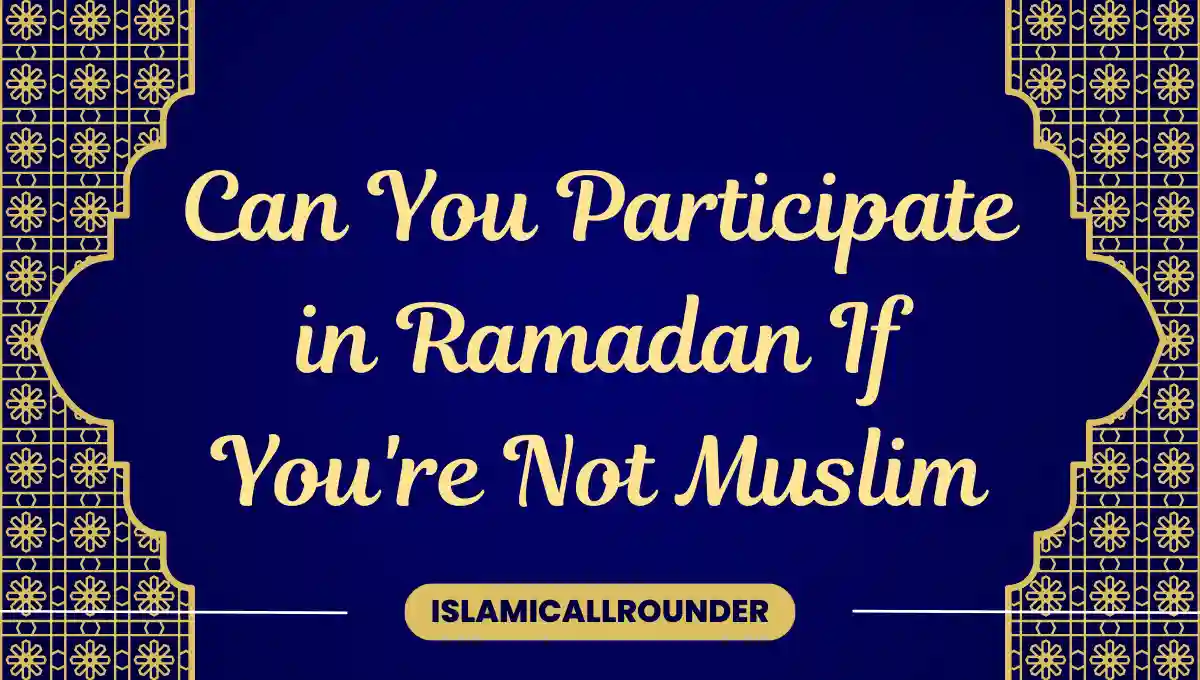What are you looking for about whether you can participate in Ramadan If You’re Not Muslim? As Ramadan, the holy month of fasting and spiritual reflection, approaches, many non-Muslims may wonder whether they can participate in this significant religious observance. While Ramadan is deeply rooted in Islamic tradition and holds profound spiritual significance for Muslims worldwide, the question of whether non-Muslims can partake in Ramadan is multifaceted and nuanced.
In this blog post, we’ll explore the various perspectives on this topic and delve into ways that non-Muslims can respectfully engage with and support their Muslim friends and communities during Ramadan.
Understanding Ramadan
Ramadan is the ninth month of the Islamic lunar calendar, during which Muslims worldwide observe fasting (Sawm) from dawn until sunset. Fasting during Ramadan is among the Five Pillars of Islam and is practiced to cultivate self-discipline, empathy for the less fortunate, and spiritual growth.
In addition to fasting, Muslims engage in increased prayer, recitation of the Quran, acts of charity (Zakat), and reflection on their faith and actions.
Participation as a Non-Muslim
While Ramadan is a religious obligation for Muslims, non-Muslims can still participate in and support the spirit of Ramadan in various ways. Here are some respectful and meaningful ways for non-Muslims to engage with Ramadan:
- Educate Yourself: Take the time to learn about the significance of Ramadan, its rituals, and its importance in the Islamic faith and culture. Understanding the context and background of Ramadan will deepen your appreciation and respect for this sacred observance.
- Show Respect: Be mindful and respectful of your Muslim friends, colleagues, and neighbors observing Ramadan. Avoid eating, drinking, or smoking in front of them during fasting hours out of courtesy and consideration.
- Join Community Events: Many mosques and Islamic centers host community iftars (breaking of the fast) and other Ramadan-related events open to people of all faiths. Consider attending these events to experience the spirit of Ramadan firsthand and engage in interfaith dialogue and fellowship.
- Offer Support: Show your support for Muslims observing Ramadan by expressing kindness, empathy, and solidarity. Offer to assist with errands, chores, or tasks that may be challenging for individuals fasting during Ramadan.
- Practice Gratitude: Use Ramadan to cultivate gratitude, mindfulness, and compassion in your own life. Reflect on your blessings, practice acts of kindness and generosity, and strive to impact your community positively.
Conclusion
In conclusion, while Ramadan is a religious observance with profound significance for Muslims, non-Muslims can still participate in and support the spirit of Ramadan in meaningful and respectful ways. Educating ourselves, showing respect, joining community events, offering support, and practicing gratitude can foster greater understanding, empathy, and unity across religious and cultural divides.
Ramadan reminds us of the values of compassion, generosity, and self-discipline that transcend religious boundaries and enrich the human experience for all.
